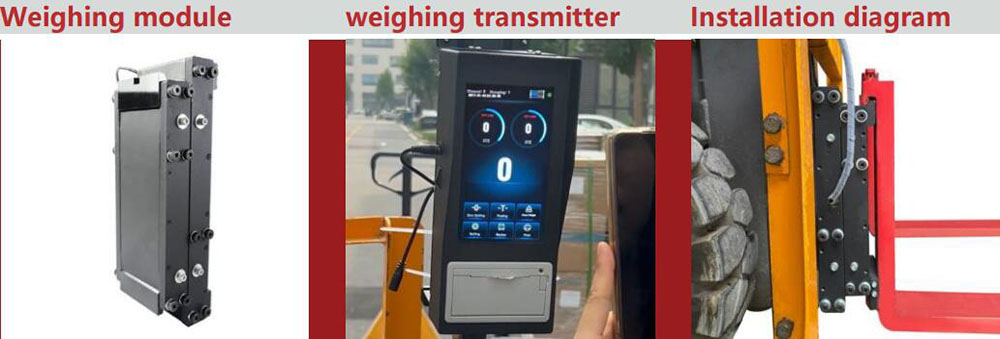Modern logistics have experienced swift development. So, the forklift weighing system is now essential. It improves efficiency in warehouses and transport. This article will explore forklift weighing systems. It will cover their principles, benefits, and use cases.
A forklift weighing system is a device mounted on a forklift. It can monitor and record the weight of goods in real-time. Not possible to remove the adverb. It lets operators get weight info while handling cargo. This way, businesses can avoid overloads. They can also improve loading efficiency and reduce time losses.

Traditional weighing methods use specialized scales. They waste time and can cause weight recording errors when transferring goods. The forklift weighing system can weigh items in transit. This makes logistics more efficient. For businesses that often handle large amounts of materials, this system is vital. It can lead to a substantial increase in productivity.
A key benefit of the forklift weighing system is its convenience and flexibility. Traditional weighing needs extra equipment and space. You can build the forklift weighing system into the forklift. This eliminates the need for extra space and tools. This all-in-one design saves costs. It also helps operators monitor weights during handling.
Furthermore, forklift weighing systems can provide real-time data analysis capabilities. Some advanced systems can transmit weight data to a central database without using wires. It can analyze the data. This data is real-time and accurate. It helps optimize inventory and improve efficiency. For instance, businesses can use real-time data to adjust their inventory. This can reduce excess stock and shortages.
Many industries now use forklift weighing systems as standard. The food, chemical, and metallurgy sectors have strict rules. They require accurate weighing and real-time monitoring. These systems help companies control production and ensure smooth operations at every stage
At the same time, forklift weighing systems offer certain safety features. Overloading can damage forklifts and may cause safety accidents. Real-time weight monitoring enables companies to address overloading issues without delay. This ensures safe operations. This is crucial for protecting employees’ safety and safeguarding corporate assets.
Many forklift weighing systems are on the market. Businesses should consider their needs when choosing one. For example, some systems weigh heavy materials better than others. Some are better for lighter cargo. Also, the system’s accuracy, durability, and UI are key factors to check when buying.
In the future, smart technology will advance. Forklift weighing systems will become more intelligent and automated. For example, IoT-enabled forklift weighing systems will boost logistics efficiency. They will allow for better data analysis and real-time monitoring. To remain competitive, businesses must update their technology on a regular basis.
In summary, the forklift weighing system is vital to modern logistics. It gives businesses a safe, accurate, and efficient way to handle goods. As technology advances, it will improve and expand its uses. This will make the logistics industry more efficient. Companies seeking a competitive edge should consider investing in forklift weighing systems.
Post time: Jan-13-2025









